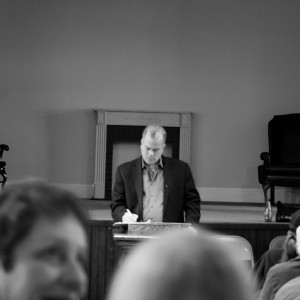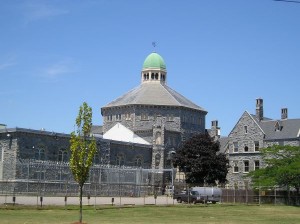 The electoral race between Speaker of the House Nicholas Mattiello and his Republican challenger Steven Frias has, for obvious reasons, drawn an incredible amount of attention. Both candidates are working very hard to capture every vote they can in their district. But one exceptional aspect of their race has gone unmentioned: they have fewer people to convince to vote for them than in all but one other House district.
The electoral race between Speaker of the House Nicholas Mattiello and his Republican challenger Steven Frias has, for obvious reasons, drawn an incredible amount of attention. Both candidates are working very hard to capture every vote they can in their district. But one exceptional aspect of their race has gone unmentioned: they have fewer people to convince to vote for them than in all but one other House district.
The reason for this anomaly is the very undemocratic (small d) practice of prison gerrymandering. Prison gerrymandering refers to counting all of the people incarcerated at a prison in the district where the prison is located for purposes of creating district lines, even if they don’t legally reside there, are barred from voting there, and must vote (absentee) from their actual home addresses. District 15 has approximately 1,230 of these incarcerated persons being counted as constituents there.

This skewing has a number of consequences. Specifically, as noted above, it means that Speaker Mattiello and challenger Frias actually have 1,230 fewer constituents they have to reach out to and represent. Although they are treated as residents of District 15 for purposes of carving up that district, these incarcerated persons are not considered residents there for any other meaningful purpose, including for purposes of voting. In fact, the many ACI inmates who remain eligible to vote despite being incarcerated are essentially barred by state law from voting in this House race. Instead, they must vote (by absentee ballot, of course) in the election that is taking place where they previously resided.
 There is another impact that flows from this practice: the voting strength of the communities from which the inmates come is diluted, while the political influence of the city residents in which the prison is located is inflated. By inappropriately counting the 1,230 ACI inmates as District 15 residents, every resident of the state not living there has his or her representation diluted by about 8% compared to residents in district 15. Put another way, by virtue of his location, the House Speaker is more powerful than other legislators not just because of his title, but because 92 constituents of his House District have the same influence as 100 residents in almost every other district. (Only neighboring District 20, which also includes portions of the ACI, wields a bigger disproportionate influence.)
There is another impact that flows from this practice: the voting strength of the communities from which the inmates come is diluted, while the political influence of the city residents in which the prison is located is inflated. By inappropriately counting the 1,230 ACI inmates as District 15 residents, every resident of the state not living there has his or her representation diluted by about 8% compared to residents in district 15. Put another way, by virtue of his location, the House Speaker is more powerful than other legislators not just because of his title, but because 92 constituents of his House District have the same influence as 100 residents in almost every other district. (Only neighboring District 20, which also includes portions of the ACI, wields a bigger disproportionate influence.)
In 2013, the ACLU sued to challenge this practice. In a major decision, U.S. District Court Judge Ronald Lagueux agreed that prison gerrymandering violated the one person, one vote requirements of the U.S. Constitution. Unfortunately, earlier this month, the U.S. Court of Appeals in Boston reversed that decision.
As a result, it is now up to elected officials to address the issue. For the past three years, the state Senate has passed a bill that would ban prison gerrymandering, something that four other states and a few hundred municipalities across the country have done in recognition of this problem. Unfortunately, the bill has died in the House in past years. And at the local level, Cranston officials decided it was worth spending taxpayer money (to the tune of $250,000 even before the appeal) rather than make their municipal districts more equitable as so many other localities have voluntarily done.
Once all the votes are counted in the District 15 race on November 8th, we will only be able to speculate what the outcome might have been if the two candidates had to increase their door-knocking to persuade hundreds of additional people (more closely matching the number of constituents that candidates in other districts generally must represent) to vote for them.
We should stop speculating by eliminating its cause. There is no question that Speaker Mattiello cares deeply about his community, just as we are sure Mr. Frias does. Let’s halt the practice of prison gerrymandering so that 1,000 more people can benefit from that care and stewardship, and so that District 15 (and District 20) more fairly represents the same number of residents as other districts.
]]>